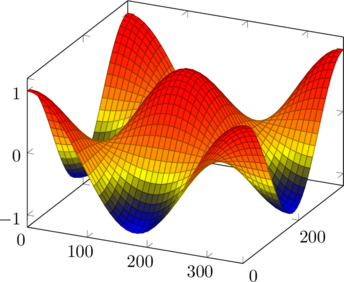Supervised Machine Learning
Linear Equations
(1) ![]()
(2) ![]()
![]()
(3) ![]()
![]() are weights
are weights
![]() are datasets
are datasets
So in linear equation weight remain same but dataset varies.
System of Sentences
Non Singular System
Such system comprises of non contradictory statements. Which results in more info for analysis. e.g.
System-1
- The dog is black.
- The cat is yellow.
Both statements are providing unique information. In this system we can deduce some information which is not provided directly. e.g
- Between the dog, the cat and the bird, one of them is red
- Between the dog and the cat, one of them is orange
- The dog is black.
- What colour is the bird? [ This information is not there]
- And the solution is that the bird is red.
Singular System
This system have contradictory or redundant statements.
System-2
- The dog is black.
- The dog is black.
Redundancy information. Rank is the measure use to know how redundant the system is.
System-3
- The dog is black.
- The dog is white.
Contradictory information.
System of Equations
Non Singular System
- a=apple
- b=banana
- numbers are price in rupee
- a+b= 10
- a+2b=12
- we can deduce the price of a and b
- If we draw line in cartesian plane the above two lines will intersect each other at one point. That will be the solution
Singular System
- a+b=10
- 2a+2b=20
- Redundant equations. There can be infinitely many solution e.g (3,7), (2,8), (2.1, 7.9)..
- If we draw line in cartesian plane the above two lines will coincide with each.Therefore all points on those lines are solution.
- a+b=20
- 2a+2b=24
- Contradictory equations. No solution possible
- If we draw line in cartesian plane the above two lines will be parallel to each other. That will be no solution.
Note: Constant in linear equation not important to determine if the equation is singular or non-singular.
Matrix

1st Matrix: 3Row1 +2Row2 = Row3 i.e 3rd matrix dependent on first two matrices. Therefore, Singular
2nd Matrix: Row1 – Row2 = Row3 i.e 3rd matrix dependent on first two matrices. Therefore, Singular
3rd Matrix: No relation i.e 3rd matrix not dependent on first two matrices. Therefore, Non-Singular
4th Matrix: 2Row1 = Row3 i.e 3rd matrix dependent on first matrix. Therefore, Singular

The Determinant (|A|)

- Singular Matrices – If the determinant is 0 then matrices are Singular
- Non Singular Matrices – If the determinant is not 0 then matrices are Non Singular
For 2×2 matrix
|A| = a*d – b*c == 0 Singular
|A| = a*d – b*c != 0 Non Singular
For 3×3 matrix
|A| = a*(e*k – j* f) – b*(d*k – f*i) + c*(d*j – e* i) == 0 Singular
|A| = a*(e*k – j* f) – b*(d*k – f*i) + c*(d*j – e* i) != 0 Non Singular
Note: Shortcut to find determinant if all data below the diagonal elements are 0.
In this case determinant is the product of all diagonal element. e.g

|A| = a*e*k


